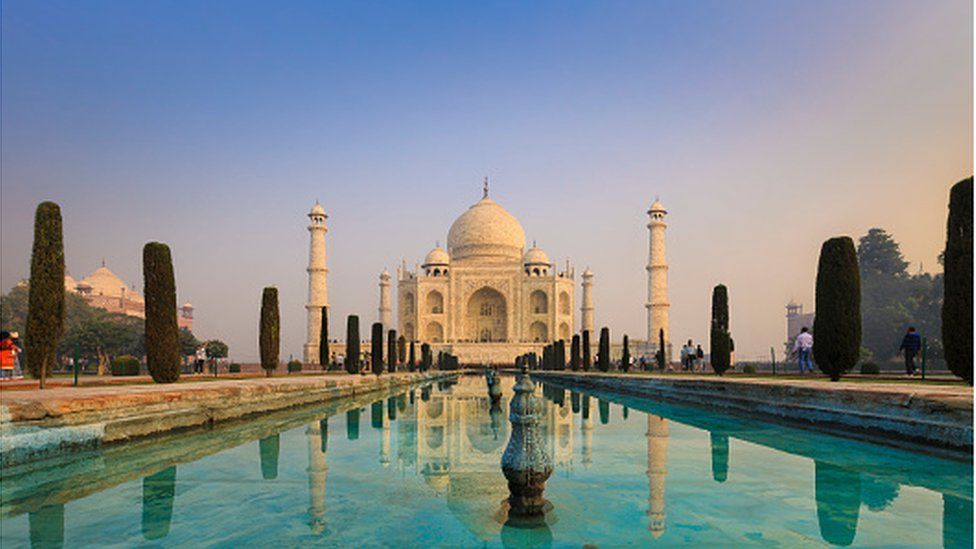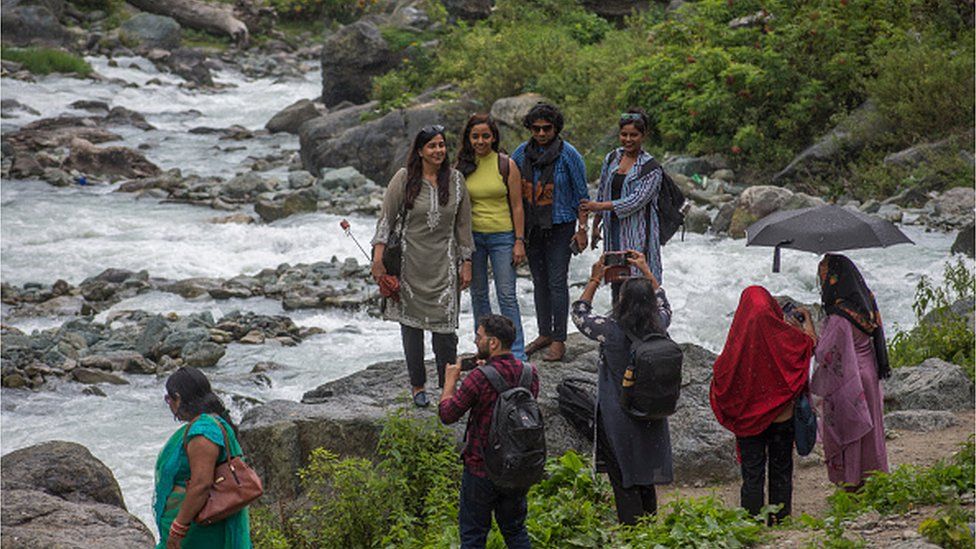The COVID-19 outbreak prevented travel for more than two years, but today India’s tourist and hospitality sectors are pretty hopeful. Journalist Rubina A. Khan, a freelance, on the roots of optimism.
Nearly 3% of India’s GDP and roughly 100 million jobs were created by tourism in 2019.
But the sector was severely hit in India – like in other countries – when the pandemic struck. Only 2.74 million foreign tourists visited India in 2020 compared with 10.93 million the year before, official data shows.
While the number of foreign visitors is still nowhere close to pre-pandemic levels, travel company operators and hotel industry executives say an upsurge in domestic tourists is making them more upbeat.
After two years of being cooped up inside, Indians are now travelling with a vengeance – ‘revenge travel’, as the phenomenon is called. And many, experts say, now prefer to travel within the country instead of flying to more expensive destinations abroad.
The industry is also benefiting from new trends borne of the pandemic such as micro-holidays and workcations.
Deep Kalra, the founder, and chairman of the travel website Make My Trip, says the sector started seeing an upturn in the last quarter of 2020, and has been consistently recovering ever since
Experts say the pandemic offered Indians an opportunity to explore their own country.
India has always been a popular tourist destination. From historic forts and stunning palaces to dense jungles, there’s no shortage of options for visitors.
But with international travel disrupted for months, more and more Indians became open to the idea of vacationing within the country, says Vishal Suri, the managing director of travel company SOTC.

“The pandemic has given Indians a new-found appreciation for the outdoors,” Mr Suri says.
He adds that there has been an uptick in demand for unexplored destinations – people are seeking ways to combine pilgrimages and spiritual trips with experiencing local food, cultural trails and adventure.
The pandemic also generated new trends such as staycations and workcations – combining remote working with vacations.
“Travellers are now extremely comfortable with booking homestays that offer exclusivity, privacy, and the comfort of a home away from home,” says Pradeep Shetty, a senior official at the Federation of Hotel and Restaurant Associations Of India (FHRAI).
Mr Kalra from Make My Trip agrees – he says that people have warmed up to the idea of travelling within India whenever possible.
“Even the travel frequency has changed and become more regular. The annual break has now turned into micro-holidays with people increasingly taking more breaks in the form of multiple weekend getaways and seasonal holiday breaks,” he says.
Impact on the hospitality sector
This shift has turned out to be a revenue-spinner for hotels in India, as people are now willing to use the money they would normally reserve for their international vacations on better facilities domestically.
Some luxury hotels dropped their prices at intervals in the pandemic, leading to a spike in bookings and short-term revenues.
Puneet Chhatwal, the COO of The Indian Hotels Company Ltd (IHCL) – India’s largest hospitality company which operates the Taj chain of luxury hotels – says that after each successive Covid wave, the recovery was “stronger and quicker”.
“The ICHL’s occupancy figures today exceed the pre-pandemic levels – a resurgence that is primarily fuelled by domestic tourism,” he adds.

Raffles Udaipur – run by international hotel chain Raffles – is situated on a private island and opened in August 2021, just months after the devastating second wave of the pandemic in India.
But the hotel has seen a “healthy rate of occupancy” every month throughout its first year of operations in India, says Puneet Dhawan, the hotel’s senior vice-president for India and South Asia.
“While we have no pre-pandemic metric to compare to, we have observed a steady rise in the response to our property,” he adds.
Mr Dhawan says the hotel is gearing up for an even busier year ahead – starting with the tourist rush in winter and the upcoming wedding season.
Mr Kalra says there are other positive signs too, such as the resumption of corporate travel – a trend that is likely to increase in the coming quarters, aiding overall recovery for the travel industry.
Challenges
But despite the optimism, people in the industry say that domestic tourism alone cannot take the sector back to the pre-pandemic-level of growth.
In September, India’s tourism minister said that the government was working towards the all-round revival of the tourism sector.
But foreign arrivals continue to be dismal – data shows they dipped by 44.5% in 2021 compared with the year before.

“India has not released a single campaign inviting the world to us. What we need is a stellar marketing strategy that excites travellers enough to choose us, especially the 60 million people that used to travel to China and aren’t today,” says Dipak Deva, managing director of the Travel Corporation of India, one of India’s best-known travel agencies.
He adds that the government also needs to restore its e-visa facility – especially for countries such as the UK from where a large number of tourists visit India – as the current procedure is too cumbersome.
However, Mr Kalra feels that both domestic and international travel are “here to grow together, and not against each other“.
“With international travel now returning to the fore, we are confident that in a few quarters, international travel will also be able to recover completely.”
